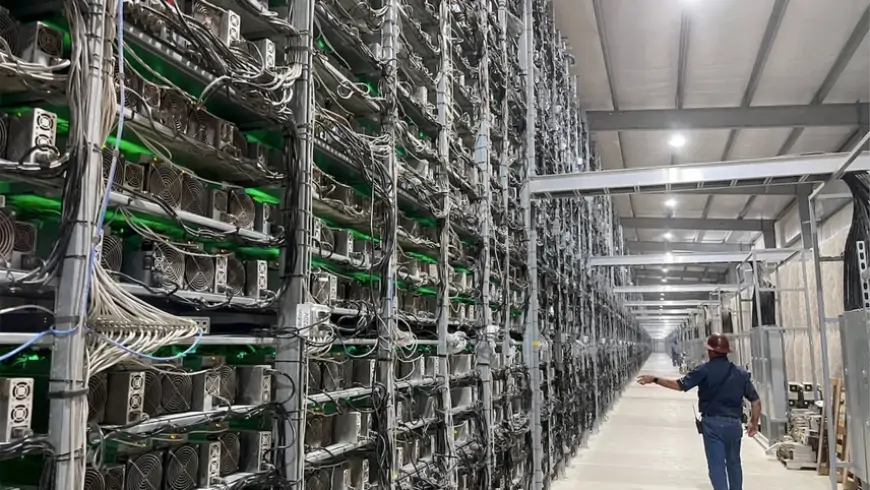Bitcoin miners are moving away from cryptocurrency to AI
Explore the shift of Bitcoin miners towards AI computing, driven by higher profit margins and the demands of high uptime, as detailed by CoinShares Research.

Over the past year, there has been a notable transformation in the Bitcoin (BTC) mining sector. More Bitcoin mining companies are redirecting their efforts towards catering to the data storage and computing demands of the artificial intelligence (AI) sector.
Bitcoin miners transitioning to AI: Reasons and benefits
The Bitcoin (BTC) mining industry has recently undergone a significant transformation, with many companies shifting their focus to meet the data storage and computational needs of the artificial intelligence (AI) sector. This move is driven by factors such as diversifying revenue streams, achieving higher profit margins, the robust growth trajectory of AI, and the strategic alignment between Bitcoin mining and high-performance computing (HPC).
The overlap between Bitcoin mining centers and traditional data centers is advantageous for miners entering the AI market. Both types of facilities require substantial energy consumption, efficient cooling systems, and adequate ventilation. This shared infrastructure allows Bitcoin mining facilities to be repurposed into HPC centers essential for AI operations. For instance, Core Scientific has adapted part of its infrastructure to host Nvidia GPU chips for CoreWeave's cloud GPU services aimed at HPC applications. Highlighting their capabilities, Core Scientific emphasized their flexibility and expertise in rapidly deploying and managing high-power infrastructure.
In contrast, Bit Digital has adopted a different strategy by offering GPU rentals to AI clients rather than focusing solely on hosting services like Core Scientific. This diversification into AI services represents a strategic expansion for Bit Digital, leveraging the natural synergies between Bitcoin mining and AI infrastructure.
AI revenue shields Bitcoin miners against market volatility
Sam Tabar of Bit Digital highlighted that the company's AI ventures will offer a "non-correlated income stream," safeguarding it against potential downturns in its primary businesses of bitcoin mining and ETH staking.
Bitcoin mining is inherently cyclical, heavily influenced by Bitcoin's market prices and its protocol's difficulty adjustments designed to adapt to increased mining activity. Alongside these factors, uncertainties like Bitcoin halving events, regulatory developments in the crypto sector, and fierce competition further complicate the landscape for miners.
The pivot towards AI represents a strategic move for miners to diversify their revenue streams and mitigate the impact of Bitcoin market fluctuations. This shift promises a stable income from an AI industry projected to undergo substantial growth in the foreseeable future.
Bitcoin miners embrace lucrative AI industry
Bitcoin miners are increasingly drawn to the burgeoning AI industry, and it's not difficult to understand why. According to PwC, AI is projected to contribute a staggering $15.7 trillion to the global economy by 2030—more than the combined GDP of Germany, Japan, and India. This astronomical growth potential is compelling miners to shift their focus.
KKR, a global investment firm, predicts that AI's demand for data and processing power will reshape data center operations over the next decade. In 2024, AI already accounted for 30% of workloads in hyperscale data centers, a figure expected to rise to 50% by 2030. KKR likened networks of data centers to a new utility in the digital economy, playing crucial roles from data production and refinement to distribution, akin to farming, mining, manufacturing, and logistics in the physical economy.
Bitcoin miners transitioning towards AI computing
As Bitcoin miners increasingly explore AI computing, understanding the differences between Bitcoin mining and AI computing becomes crucial. According to CoinShares Research, one key distinction lies in their energy and internet uptime requirements.
AI computing demands extremely high uptime (typically 99% or higher) to ensure uninterrupted processing, often enforced through contractual penalties for downtime delays. In contrast, Bitcoin mining operations can be swiftly powered on or off, making them adaptable to locations with less reliable energy sources.
CoinShares Research notes a shift among miners in energy-secure locations towards AI computing, driven by the potential for revenue diversification and higher profit margins. This trend suggests a growing preference for AI over Bitcoin mining, potentially leading to further divergence in mining strategies.












































